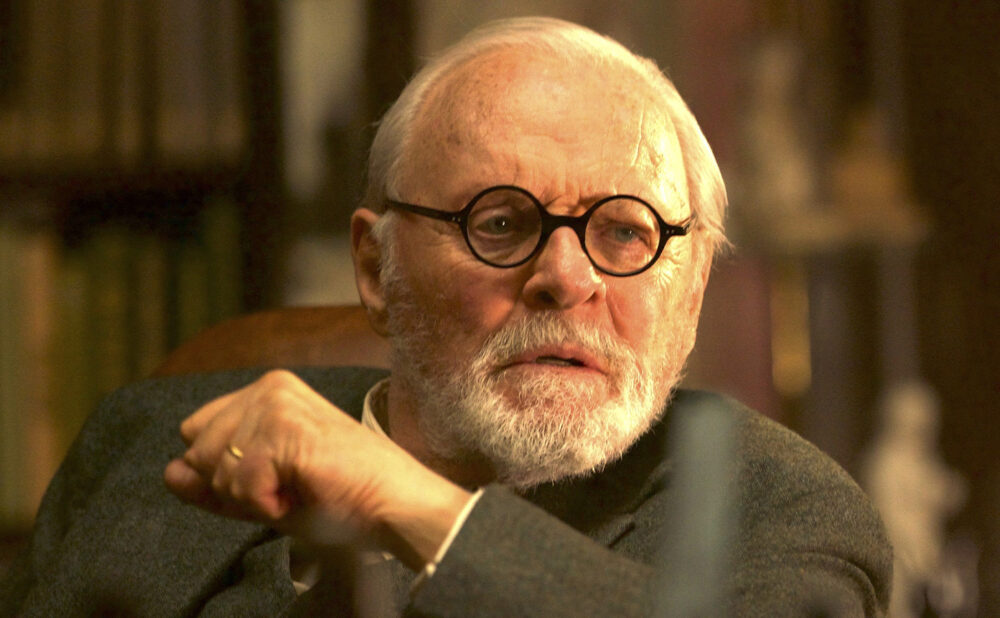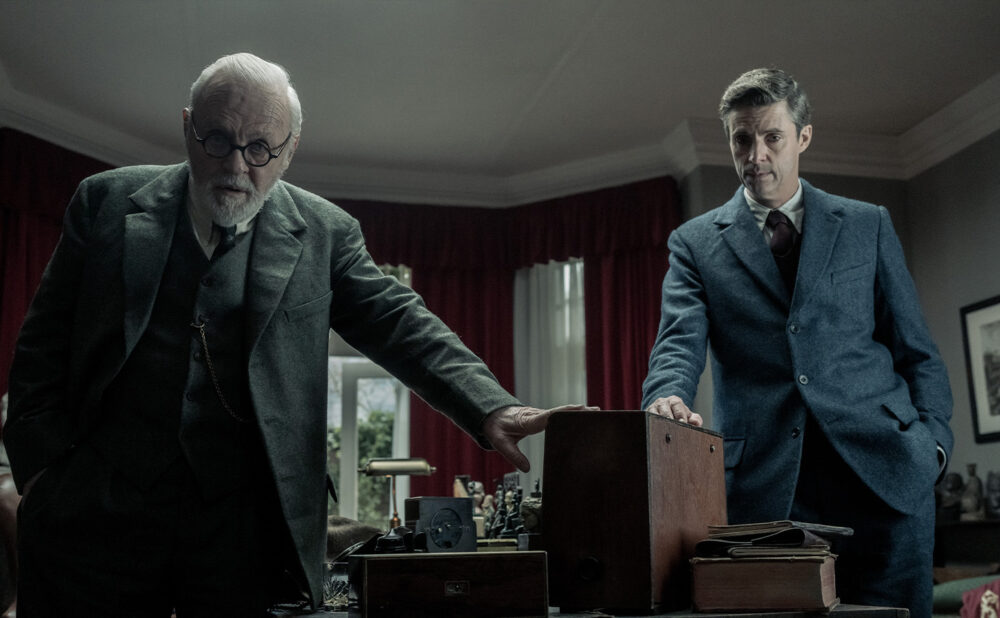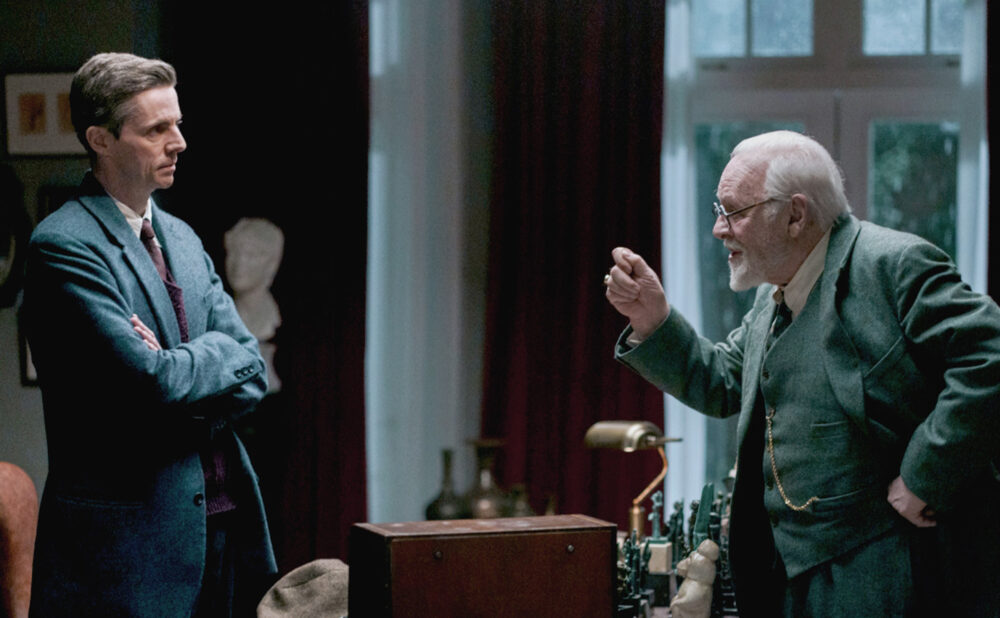Review: ‘Freud’s Last Session’ an intimate look at legend’s last days
Anthony Hopkins delivers another award-worthy performance as Freud
Freud’s Last Session
Where: In theatres
What: Movie, 108 mins.
When: Fri., Jan. 12
Genre: Drama
Rating: NNN (out of 5)
Why you should watch: Note-perfect performance from acting legend Anthony Hopkins as Sigmund Freud in his last days debating existence of god with C.S. Lewis (Matthew Goode)
ANTHONY HOPKINS reliably gives masterclass performances in every film, and his latest as the titular psychoanalyst in Freud’s Last Session is yet another Oscar-worthy gig for the star.
It’s Hopkins’s film though he shares screen time with The Crown’s Matthew Goode, who plays college don C. S. Lewis. In this fictionalized meeting in 1939 London, they debate the existence of god — among other things — with Freud in the negative and Lewis, a noted Christian, in the affirmative.
Freud is mesmerizing and often amusing as he is almost dismissive of Lewis’s “superstition.” Lewis remains mesmerized and spends much of the film seemingly in awe of the master, offering little effective resistance to his views.
The discussion takes on more urgency as occasional radio bulletins about the beginning stages of the Second World War disrupt the conversation.
Simultaneously, Freud navigates facing his mortality as he battles the effects of oral cancer, a condition that will see the psychiatrist take his own life a few weeks after the fictionalized meeting.
A subplot involving Freud’s doting (obsessive?) daughter Anna (Liv Lisa Fries), her devotion to her father and her reluctance to come out as queer to him delivers a moderately brewing narrative arch.
The story is concentrated in Freud’s study, — appropriately cluttered and ironically littered with icons and religious statues — which is unsurprising as the film is adapted from a stage play by Mark St. Germain, who also penned this screenplay. However, flashbacks of Lewis’s traumatic service during the First World War and Freud’s life in Vienna offer the film’s limited “action.”
With conversation so intimate and real, the experience feels like eavesdropping on a therapy session with Hopkins at the top of his game.







